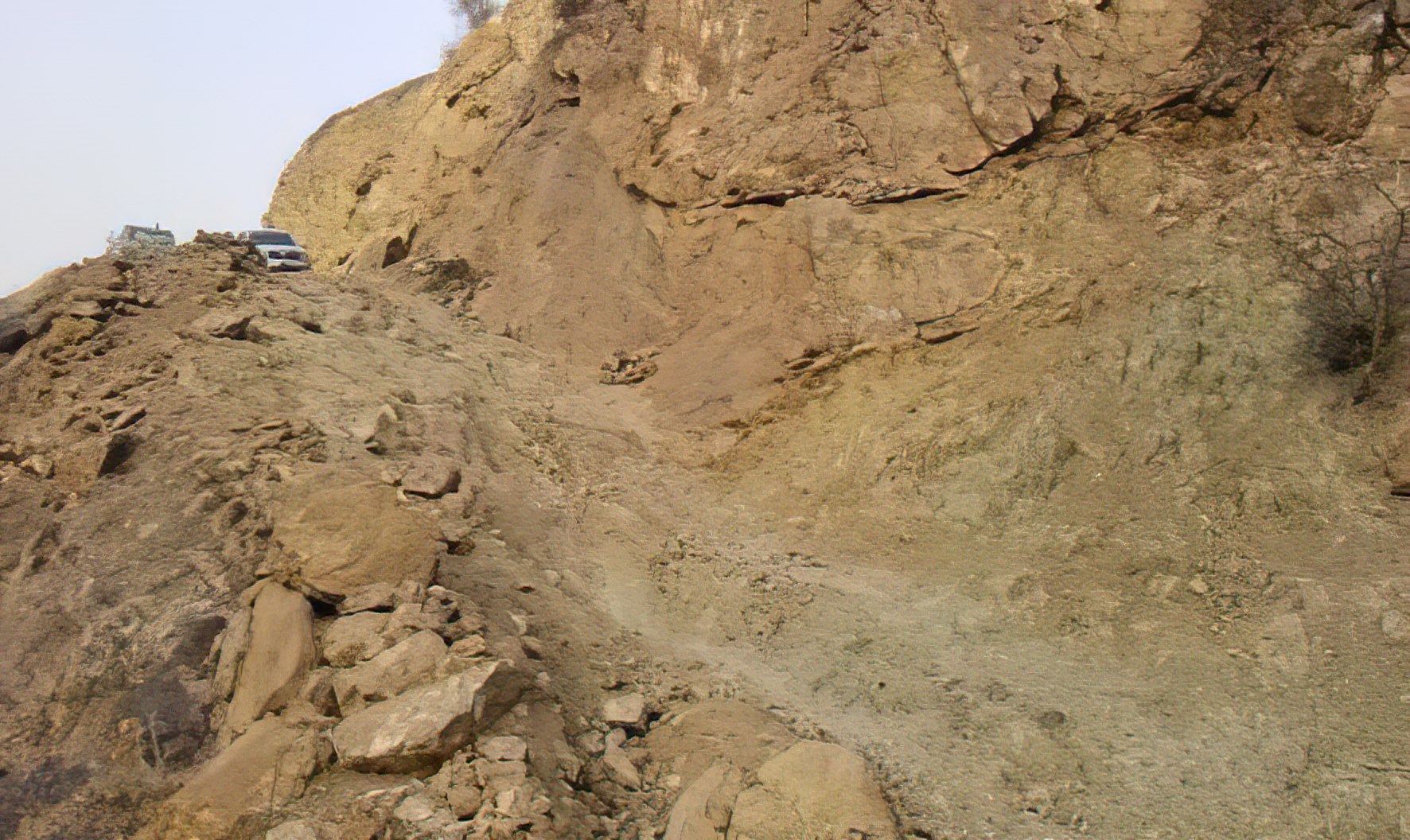The Al-Suwayr pass, located in Wisab Al-Safil District of Dhamar Governorate, was infamously known as the “Death Pass” due to the frequent vehicle accidents and tragic fatalities, especially among women as they are being rushed to hospitals in the city for childbirth.
The road, carved through mountainous terrain, was extremely steep and treacherous, with transportation limited to aging four-wheel-drive vehicles from the 1970s. Local residents, facing daily hardship, were often compelled to use animals or carry their essential goods on their backs, significantly increasing the physical and economic burden on dozens of families.
A Terrifying Nightmare
Transport vehicles regularly fall off the cliffs on this route, causing repeated fatalities and severe injuries, turning every journey into a distressing ordeal. According to Saleh Sa’ad Obadi, a local resident, passengers would commonly disembark at the start of the pass, preferring to walk rather than risk riding through the hazardous stretch—a testament to the level of fear and danger associated with this road. There were numerous recorded incidents of vehicles falling, each resulting in deaths or critical injuries. Obadi further recounts that several women lost their lives during childbirth due to delayed arrival by the vehicle called for emergency transport, as the women had to be carried on stretchers from the village to the foot of the pass, the nearest point accessible by ordinary vehicles.
Life has Improved
With the paving of the pass, residents’ lives have markedly improved. Taxi services and motorcycles can now readily reach the area, facilitating movement and reducing costs, as noted by project beneficiary Abdul Rab Mukhtar. He adds that the burden of daily living expenses has been significantly reduced with the availability of accessible transportation. Community members can now travel to markets regularly, and farmers are able to transport their produce and livestock with ease, marking a transformative improvement in local quality of life.




